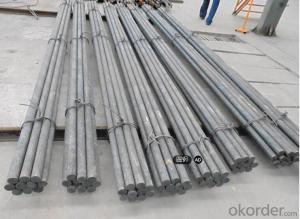C45/AISI 1045/EN8 Carbon Steel Round Bar
- Loading Port:
- Shanghai
- Payment Terms:
- TT OR LC
- Min Order Qty:
- 3 m.t.
- Supply Capability:
- 100000 m.t./month
OKorder Service Pledge
OKorder Financial Service
You Might Also Like
Item specifice
C45/AISI 1045/EN8 Carbon Steel Round Bar
Details Information of C45/AISI 1045/EN8 Carbon Steel Round Bar
| Name | C45/AISI 1045/EN8 Carbon Steel Round Bar |
| Shape | Round Bar/Square Bar/Flat Bar/Plate/Wire |
| Standard | GB/ASTM/SAE/AISI/DIN/JIS/EN/BS |
| Surface Treatment: | Black/Peeling/Polished/Machined |
| Delivery Condition: | Hot Rolled or Forged/Peeled or Black Surface |
| Test | SGS/UT 100% Elements Testing |
| Certificate: | ISO/Mill Certificate |
| Service: | 24 hours online service / |
| more than 20 years trading and manufacture | |
| Quality Assurance: | the third party inspection, such as SGS, BV, TUV…etc. is acceptable |
| Packaging Details: | Seaworthy Packaging or as per customer's packing instruction |
| Carbon structure round bar | Q195 Q235A Q235B 10# 20#-55# S45CB |
| Low alloy high strength round bar | Q345A/Q345C/Q345D Q345B Q345E |
| Alloy structure round bar | SAE51B20 20Cr 40Cr 40CrV 20CrMo/30CrMo/35CrMo/42CrMo 20CrMoA/30CrMoA/35CrMoA/42CrMoA/42Cr ML20CrMo/ML30CrMo/ML35CrMo/ML42CrMo B7/SCM435-440 20MnTiB 20CrMnMo 20CrMoH 42CrMoH 40MnB/40MnBH 30Mn2-40Mn2 27SiMn 50CrVA 30CrMnTi |
| Pinion steel | 20CrMnTi 20CrMnTiH 20CrMnTiHCS/20CrMnTiHLD Q20CrMnTi-1/Q20CrMnTi-2 |
| Sucker rod | 20-35CrMoA |
| Free-cutting steel | GT1215S |
| Spring steel | 60Si2MnA 65Mn |
| Ball bearing steel | GCr15 |
Chemical Composition of C45/AISI 1045/EN8 Carbon Steel Round Bar
| C | Si | Mn | P | S | Cr | Ni | Cu |
| 0.17-0.24 | 0.17-0.37 | 0.35-0.65 | ≤0.035 | ≤0.035 | ≤0.25 | ≤0.25 | ≤0.25 |
| Tensile strength (σb/MPa) | Yield strength (σb/MPa) | Elongation (δ5/%) |
| ≥410(42) | ≥245(25) | ≥25 |
Company Introduction of C45/AISI 1045/EN8 Carbon Steel Round Bar
CNBM International Corporation is the most import and export platform of CNBM group(China National Building Material Group Corporation) ,which is a state-owned enterprise, ranked in 270th of Fortune Global 500 in 2015.
With its advantages, CNBM International are mainly concentrate on Cement, Glass, Iron and Steel, Ceramics industries and devotes herself for supplying high quality series of refractories as well as technical consultancies and logistics solution.
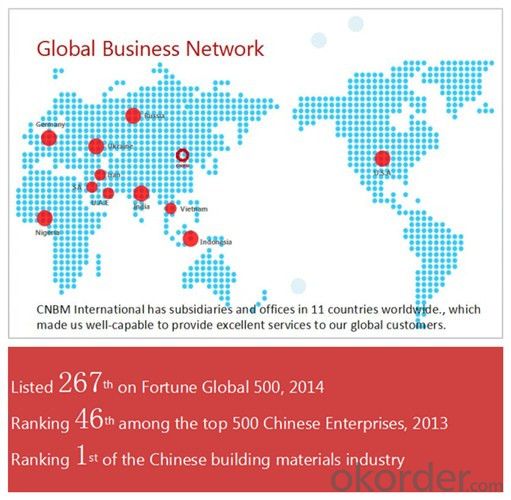
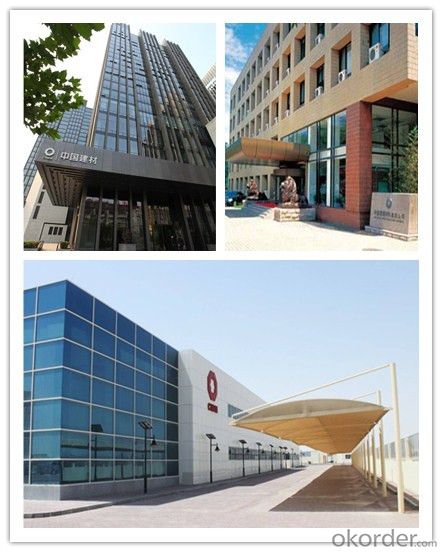
Certificates of C45/AISI 1045/EN8 Carbon Steel Round Bar
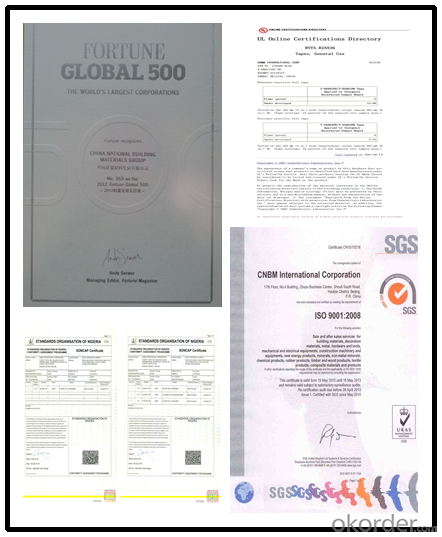
Packaging & Delivery of C45/AISI 1045/EN8 Carbon Steel Round Bar
Packaging Detail | Sea worthy packing /as per customer's packing instruction |
Delivery Detail | 15 ~ 40 days after receiving the deposit |
Products show of C45/AISI 1045/EN8 Carbon Steel Round Bar
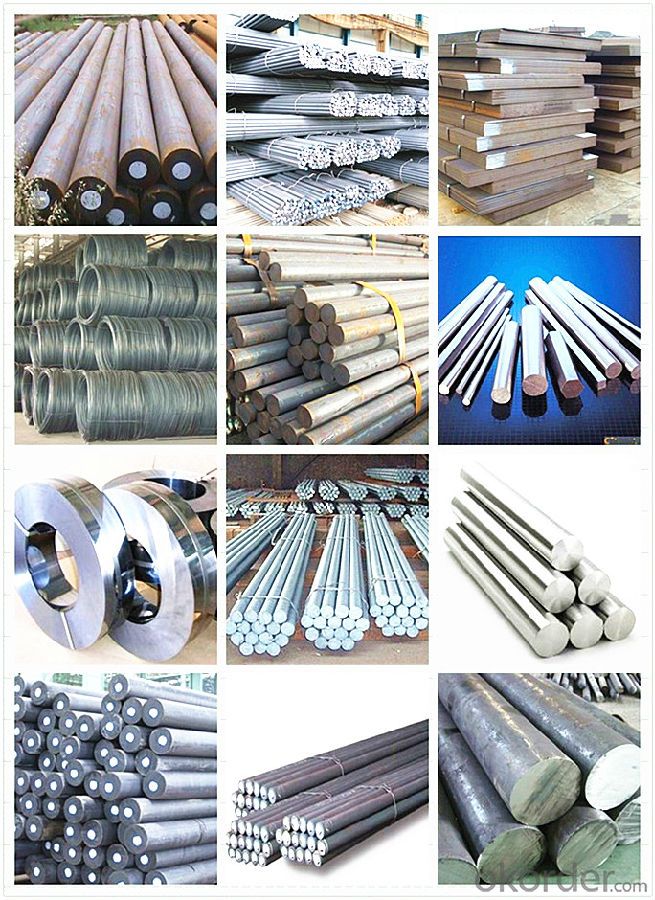
FAQ
Are you a trading company or manufacturer? | Manufacturer |
What’s the MOQ? | 3 metric ton |
What’s your delivery time? | 15-35 days after downpayment received |
Do you Accept OEM service? | Yes |
what’s your delivery terms? | FOB/CFR/CIF |
What's the Payment Terms? | 30% as deposit,70% before shipment by T/T |
Western Union acceptable for small amount. | |
L/C acceptable for large amount. | |
Scrow ,Paybal,Alipay are also ok | |
Why choose us? | Chose happens because of quality, then price, We can give you both. Additionally, we can also offer professional products inquiry, products knowledge train (for agents), smooth goods delivery, excellent customer solution proposals. |
What's your available port of Shipment? | Main Port, China |
What’s your featured services? | Our service formula: good quality+ good price+ good service=customer's trust
|
Where are your Market? | Covering more than 160 countries in the world |
- Q:What are the different coating techniques for special steel parts?
- Various techniques can be utilized to coat special steel parts, depending on specific requirements and desired properties. Below are some commonly employed coating techniques: 1. Electroplating: Through an electrochemical process, a layer of metal is deposited onto the steel part's surface. This technique offers exceptional corrosion resistance and can enhance the part's appearance. 2. Thermal spraying: Coating material is melted or heated and then sprayed onto the steel surface. Flame spraying, plasma spraying, or arc spraying methods can be utilized. Thermal spraying is commonly employed to provide wear resistance, thermal insulation, or to restore damaged parts. 3. PVD (Physical Vapor Deposition): In this vacuum coating technique, a thin film is deposited onto the steel surface. PVD offers a variety of coatings, including decorative finishes, hard coatings for wear resistance, and low-friction coatings. 4. DLC (Diamond-Like Carbon) coating: DLC is a type of PVD coating that applies a thin layer of carbon-based material with properties resembling that of diamond. It delivers excellent hardness, low friction, and high wear resistance, making it suitable for applications requiring durability and performance. 5. Powder coating: Dry powder is applied to the steel part and then cured via heat or ultraviolet light. This technique delivers a durable and appealing finish, offering outstanding corrosion resistance and protection against impact and abrasion. 6. Chemical conversion coating: A chemical solution is used to treat the steel surface, forming a protective layer. Phosphating, chromating, and anodizing are common types of chemical conversion coatings. These coatings enhance corrosion resistance, paint adhesion, and can provide electrical conductivity. Choosing the appropriate coating technique for special steel parts is crucial, considering factors such as desired properties, environmental conditions, cost-effectiveness, and specific application requirements.
- Q:How does special steel contribute to the manufacturing of hydraulic components?
- Due to its unique properties and characteristics, special steel plays a vital role in the manufacturing of hydraulic components. These components, including cylinders, pumps, valves, and fittings, operate under extreme conditions and high pressure. Therefore, they require materials capable of withstanding such demanding environments. Special steel, also referred to as alloy steel, is specifically designed to possess exceptional strength, durability, and resistance to corrosion and wear. These qualities make it an ideal material for hydraulic components, as they must endure high pressures, continuous movement, and exposure to various fluids. The impressive strength of special steel allows hydraulic components to handle heavy loads and resist deformation, ensuring their long-term reliability and performance. Furthermore, the durability of special steel ensures that hydraulic components can withstand continuous stress and movement without experiencing premature failures. An additional significant advantage of special steel is its resistance to corrosion and wear. Hydraulic components often come into contact with different fluids, such as water, oil, and chemicals. The corrosion resistance of special steel protects the components from degradation and extends their lifespan. Moreover, its resistance to wear minimizes the damage caused by friction, resulting in smooth operation and reduced maintenance requirements. Furthermore, special steel is easily machinable and can be formed into complex shapes. This versatility enables the production of intricate hydraulic components with precise specifications. Manufacturers can tailor these components to meet the specific requirements of different hydraulic systems, ensuring optimal performance and efficiency. In conclusion, special steel significantly contributes to the manufacturing of hydraulic components by providing the necessary strength, durability, corrosion resistance, and wear resistance. Its unique properties enable the production of high-quality and reliable hydraulic components that can withstand demanding environments and ensure the smooth operation of hydraulic systems.
- Q:How does special steel contribute to the energy industry?
- Special steel plays a crucial role in the energy industry by providing high-strength, corrosion-resistant materials that are essential for various applications. It is used in the construction of power plants, oil and gas pipelines, and offshore drilling platforms, ensuring the structural integrity and reliability of these critical infrastructure. Special steel also enables the production of more efficient wind turbines and solar panels, enhancing their performance and durability. Additionally, it is utilized in the manufacturing of equipment used in nuclear power plants, where its unique properties ensure safety and long-term operation. Overall, special steel is a vital component in the energy industry, supporting its growth, sustainability, and technological advancements.
- Q:What are the different methods of preventing pitting corrosion in special steel?
- Various methods exist to prevent pitting corrosion in special steel. The objective of these techniques is to safeguard the steel surface from the harmful effects of its environment and hinder the development of pits. Some commonly used methods include: 1. Passivation: Passivation entails treating the steel surface with a chemical solution or coating to generate a protective oxide layer. This layer functions as a barrier, obstructing the infiltration of corrosive agents and minimizing the risk of pitting corrosion. 2. Alloying: By incorporating specific alloying elements into the steel composition, its resistance to corrosion can be enhanced. Elements like chromium, nickel, and molybdenum are frequently utilized as they augment the steel's capacity to form a stable passive film and withstand pitting corrosion. 3. Cathodic protection: This technique involves either utilizing a sacrificial anode or employing an impressed current on the steel surface. By making the steel cathodic, it becomes less prone to corrosion as electrons are drawn away from it, thus preventing pit formation. 4. Coatings: Applying a protective coating to the steel surface can effectively deter pitting corrosion. Coatings such as paint, epoxy, or polymer-based materials serve as physical barriers, shielding the steel against corrosive agents. 5. Environmental control: Regulating the surrounding environment of the steel can also assist in preventing pitting corrosion. This encompasses measures like controlling temperature, humidity, and pH levels to ensure they remain within acceptable limits, thereby inhibiting the corrosion process. 6. Regular maintenance: Consistent inspection and maintenance of the steel surface are vital in preventing pitting corrosion. Any signs of damage or deterioration should be promptly addressed to prevent further corrosion and potential pitting. It should be noted that the choice of prevention method relies on various factors such as the specific steel composition, the corrosive environment, and the intended application. Proper selection and implementation of these methods can significantly enhance the resilience of special steel to pitting corrosion, guaranteeing its longevity and performance.
- Q:What are the advantages of using special steel in industrial applications?
- There are several advantages of using special steel in industrial applications. Firstly, special steel offers exceptional strength and durability, making it suitable for heavy-duty tasks. The unique composition and manufacturing process of special steel result in a material that can withstand high levels of stress, extreme temperatures, and harsh environmental conditions. This makes it ideal for industries such as construction, automotive, and manufacturing, where reliable and long-lasting materials are required. Secondly, special steel exhibits excellent corrosion resistance. It can resist the damaging effects of moisture, chemicals, and other corrosive agents, which is crucial in industries like marine, oil and gas, and chemical processing. The corrosion resistance of special steel reduces the need for frequent maintenance and replacement, saving both time and costs for industrial applications. Furthermore, special steel offers superior machinability and formability. It can be easily shaped, cut, and welded to meet specific design requirements. This versatility allows for complex and intricate designs in various industrial applications, including machinery, tools, and equipment. Another advantage of special steel is its ability to maintain its properties at high temperatures. It has excellent heat resistance, ensuring that it remains strong and stable even under extreme heat conditions. This makes special steel suitable for applications involving high-temperature environments, such as aerospace, power generation, and furnace components. Additionally, special steel can exhibit excellent wear resistance and hardness. It can withstand abrasion, friction, and impact, making it ideal for applications where materials are subjected to heavy wear and tear, such as mining, construction equipment, and cutting tools. The wear resistance of special steel ensures that components have a longer lifespan and require less frequent replacement. In conclusion, the advantages of using special steel in industrial applications include exceptional strength and durability, corrosion resistance, machinability and formability, heat resistance, and wear resistance. These properties make special steel a preferred choice for a wide range of industries, contributing to improved performance, longevity, and cost-effectiveness.
- Q:Can special steel be used in the medical field?
- Yes, special steel can be used in the medical field. Special steel alloys, such as stainless steel, are widely used in medical and surgical instruments, implants, and equipment. Stainless steel is chosen for its excellent corrosion resistance, strength, and durability. It is often used for surgical instruments like scalpels, forceps, and needles, as well as for orthopedic implants like bone screws and plates. Additionally, special steel alloys are used in the construction of medical equipment like MRI machines and X-ray tables, where high strength and magnetic properties are required. Overall, special steel is an essential material in the medical field due to its unique properties and ability to meet the stringent requirements for hygiene, safety, and reliability.
- Q:What are the different test methods used to evaluate special steel?
- Special steel undergoes several test methods to evaluate its quality and performance, ensuring that it meets the required standards and specifications. Commonly employed test methods include: 1. Tensile Testing: This method assesses the steel's ability to withstand tension or pulling forces, determining its ultimate tensile strength, yield strength, and elongation. 2. Hardness Testing: Hardness tests, such as Rockwell or Brinell tests, evaluate the steel's resistance to indentation or scratching, providing insight into its strength and durability. 3. Impact Testing: This test measures the steel's capacity to absorb energy under high-stress conditions. Charpy and Izod tests are frequently used to determine the steel's toughness and resistance to sudden shocks or impacts. 4. Chemical Analysis: Determining the steel's composition, including the percentage of elements like carbon, manganese, and chromium, guarantees that it meets the necessary specifications and standards. 5. Microstructure Evaluation: Microscopic examination of the steel's microstructure reveals crucial information about its grain size, phase distribution, and any potential defects or inclusions. Optical microscopy or electron microscopy techniques are employed for this purpose. 6. Corrosion Testing: Special steel must endure harsh environments or corrosive substances. Various corrosion tests, such as salt spray tests or immersion tests, assess the steel's resistance to corrosion and degradation. 7. Non-Destructive Testing (NDT): NDT methods, including ultrasonic testing, magnetic particle testing, or eddy current testing, detect surface or internal defects without damaging the steel. These tests provide valuable information about the steel's structural integrity. 8. Fatigue Testing: Fatigue tests simulate repetitive loading conditions to evaluate the steel's resistance to cyclic stress, assessing its durability and ability to withstand long-term usage or repetitive loading. Utilizing these diverse test methods, manufacturers and quality control departments can thoroughly assess the mechanical properties, chemical composition, microstructure, and other crucial factors of special steel, ensuring it meets the necessary standards and specifications.
- Q:What are the properties of corrosion-resistant stainless tool steel?
- Corrosion-resistant stainless tool steel possesses several properties that make it highly suitable for various applications. Firstly, it exhibits exceptional resistance to corrosion, even in harsh environments, due to the presence of a high percentage of chromium in its composition. This resistance helps prevent the formation of rust, stains, or pitting, ensuring durability and longevity. Additionally, this type of steel maintains its mechanical strength and hardness at elevated temperatures, making it ideal for tools and equipment subjected to high heat or wear. Furthermore, corrosion-resistant stainless tool steel offers excellent machinability, allowing for ease of shaping, cutting, and forming. Its combination of corrosion resistance, strength, and machinability makes it a popular choice for various industries, including manufacturing, construction, and automotive.
- Q:What are the different nuclear grades of special steel?
- There are several nuclear grades of special steel, including but not limited to A508 Class 1, A533 Type B Class 1, A533 Type B Class 2, A508 Class 2, A533 Type C Class 1, A508 Class 3, and A533 Type C Class 2. These grades are specifically designed to meet the stringent requirements of nuclear power plant applications, ensuring high strength, resistance to radiation damage, and excellent fracture toughness.
- Q:How does special steel contribute to the renewable energy conversion efficiency?
- Special steel plays a crucial role in improving the efficiency of renewable energy conversion by providing strength, durability, and resistance to extreme conditions. It is used in various components of renewable energy systems such as wind turbines, solar panels, and hydropower plants. The high strength-to-weight ratio of special steel enables the construction of taller wind turbine towers, allowing them to capture more wind energy at higher altitudes. Additionally, special steel is used in the production of high-efficiency solar panels, as it helps enhance their performance by increasing structural integrity and resistance to corrosion. In hydropower plants, special steel is employed to construct turbines and generators that can withstand the immense pressures and forces involved in generating electricity from water. Overall, the use of special steel in renewable energy systems contributes to their overall efficiency and longevity, aiding in the transition towards a sustainable energy future.
1. Manufacturer Overview |
|
|---|---|
| Location | |
| Year Established | |
| Annual Output Value | |
| Main Markets | |
| Company Certifications | |
2. Manufacturer Certificates |
|
|---|---|
| a) Certification Name | |
| Range | |
| Reference | |
| Validity Period | |
3. Manufacturer Capability |
|
|---|---|
| a)Trade Capacity | |
| Nearest Port | |
| Export Percentage | |
| No.of Employees in Trade Department | |
| Language Spoken: | |
| b)Factory Information | |
| Factory Size: | |
| No. of Production Lines | |
| Contract Manufacturing | |
| Product Price Range | |
Send your message to us
C45/AISI 1045/EN8 Carbon Steel Round Bar
- Loading Port:
- Shanghai
- Payment Terms:
- TT OR LC
- Min Order Qty:
- 3 m.t.
- Supply Capability:
- 100000 m.t./month
OKorder Service Pledge
OKorder Financial Service
Similar products
New products
Hot products
Related keywords
